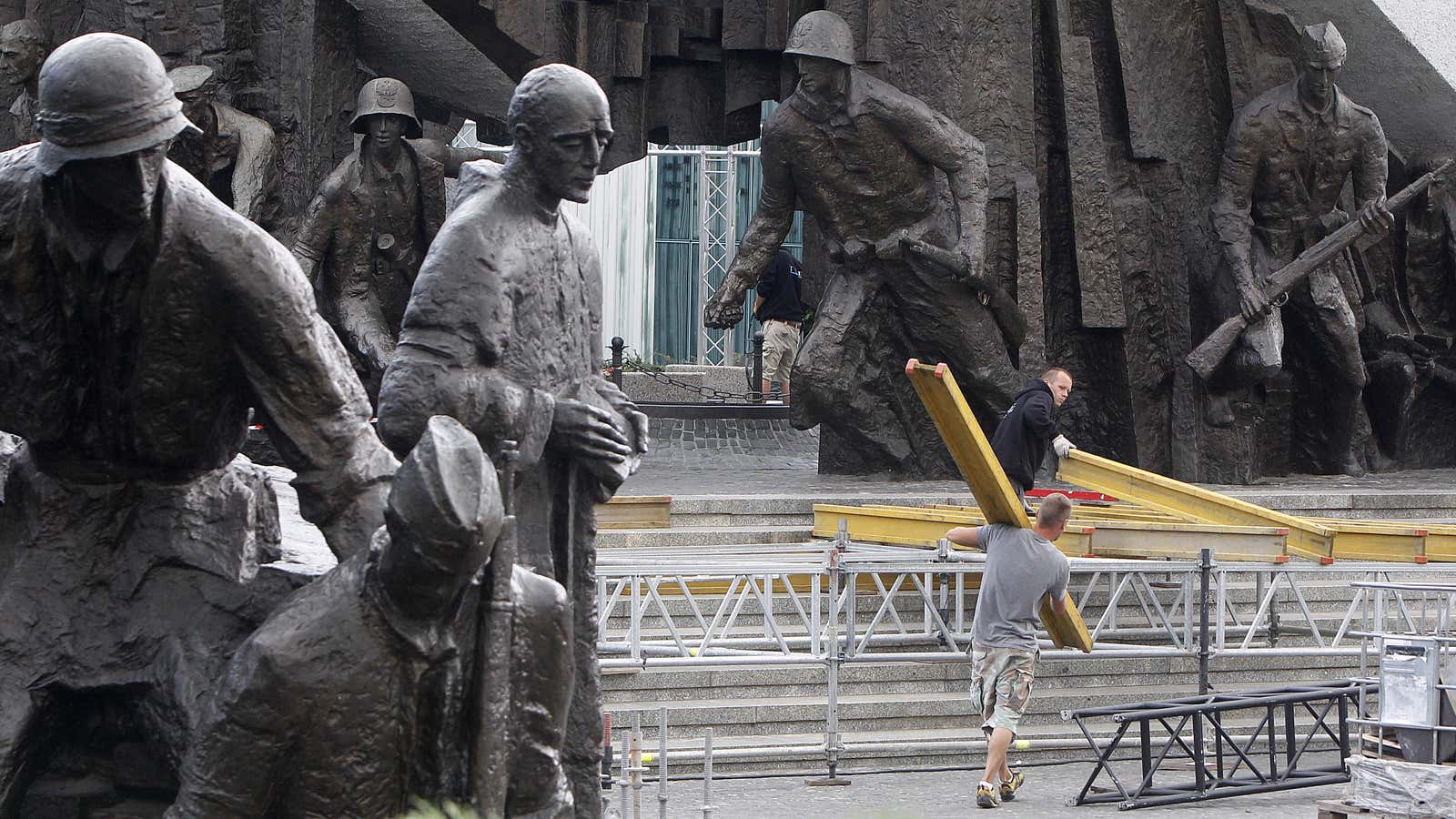Donald Trump has few fans among European leaders, drawing words of rebuke and awkward handshakes from Germany’s Angela Merkel and France’s Emmanuel Macron. His trip to the UK was postponed as he reportedly feared mass demonstrations.
So before he visits any of the major European powers, where he is nearly guaranteed confrontation of some sort, Trump is breaking with tradition by visiting Poland. The United States’ staunchest ally on the continent is ruled by a somewhat similar-minded populist, right-wing government.
In fact, the ruling Law and Justice (Polish acronym:PiS) party is preparing what is taking shape as his first rally overseas. According to Polish news platform Onet.pl, a letter from a source “close to the Polish government” to someone from Trump’s inner circle assured that he would get a keen welcome from the ideologically friendly Polish government—and that enthusiastic crowds would fill the streets.
A revival of Cold War-era tactics
PiS members of parliament are reportedly allowed to invite up to 50 people to Trump’s speech, which will be held on July 6 in Warsaw, before he attends a summit of central and eastern European nations and then a G20 meeting in Germany. The party members were promised that the party or affiliated foundations would pay for buses from their districts to the capital. Unnamed PiS politicians tell Polish media that if the mobilization is successful, they could bring in 10,000 or 15,000 people to the event. (Some point out, however, that gathering such a large crowd might be difficult considering it’s summer-vacation season.)
Observers inside and outside Poland have been quick to suggest such tactics are reminiscent of a different time in the country’s history—when the communist regime would organize mass rallies and marches to show the people’s support for their rule.
The party’s MPs have been inviting people to join the Trump event by way of Facebook, assuring that attendance is free. One such announcement reminds: “Please bring Polish flags :-).” Trump’s team appears to be on board with the patriotic theme. According to the Polish government, the US administration picked the highly symbolic site for the speech, a square with a prominent monument to the Warsaw Uprising against the Nazis, a pivotal moment in the country’s history, and huge source of Polish national pride.
In Warsaw, Trump will also be greeted by another brand of Pole as well, illustrating deep divisions within the country. A young left-wing party is organizing a “Handmaid’s Tale” protest, reminiscent of similar demonstrations around the US. The aim is to show, by donning outfits based on Margaret Atwood’s dystopian novel, that Trump—“sexist, chauvinist, and misogynistic”—is unwelcome in Poland, as is the “patriarchal violence” of PiS’s rule. In October, Polish women refused to work, hitting the streets en masse to protest a strict abortion proposal.
Why the US has deep meaning
American policy long has been important to Poland—a country perpetually tugged by forces from the east and the west— from Ronald Reagan’s role in bringing down communism, to Bill Clinton’s help in admitting Poland to NATO.
In The New York Times, Bartosz Wieliński, foreign editor for Polish daily Gazeta Wyborcza writes: “The question in Poland in the weeks leading up to Mr. Trump’s visit has been whether he will praise or scold a national-conservative government that continues to draw Poland further and further from the path of democracy and respect for human rights.”
Jacek Żakowski, a well-known journalist and pundit, in the news site Wirtualna Polska, writes that Eastern Europe is at a crossroads, and could easily be lost to Russian meddling.
“The voice of America is still important here. The voice of the American president perhaps means morally more here than it does in the US itself. This time its weight is especially significant. It’s in our common interest that it swings to the side of the west and western standards, and not to the side of Putin and his standards.”
That makes the visit of an American president who has expressed his admiration for the leadership of his Russian counterpart especially noteworthy.
